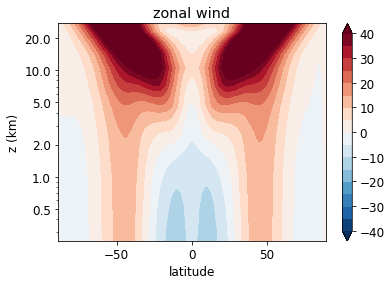
Projects
Climate Computing
Implicit Solver
PI: Tapio Schneider, Divisions of Geological and Planetary Sciences (GPS) and Engineering and Applied
Sciences (EAS)
SASE: Dennis Yatunin, Scholar
With climate change beginning to drastically alter the world, it is more essential than ever to have accurate information about the coming changes. The mission of the Climate Modelling Alliance (CliMA) is to develop a next-generation Earth system model that will provide detailed and reliable predictions, and that will serve as a platform for assessing climate-related hazards and mitigation strategies. This model will automatically learn from diverse data sources, using the latest techniques in machine learning and data assimilation to reduce and quantify its uncertainties. Built with scalability and extensibility in mind, it will be used for running high-resolution simulations on supercomputers and in the cloud, and it will allow scientists to easily modify its components for their experiments and analyses.
In this project, the Schmidt Academy assisted CliMA with the early stages of its model development. Much of this work was focused on speeding up the model through the use of implicit solvers for differential equations. Each model component consists of a set of coupled differential equations, which are discretized and solved using numerical techniques. The speed with which these techniques can solve the equations decreases as the resolution goes up, and high-resolution simulations require the use of implicit solvers, which evolve the simulation in a more stable manner than other techniques. In addition, this project involved calibrating the radiative transfer model used for the atmosphere, as well as improving the interface used to specify simulations.
